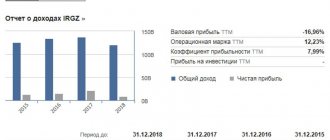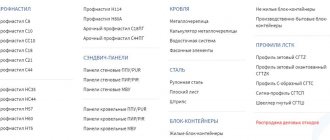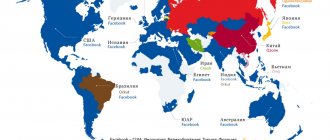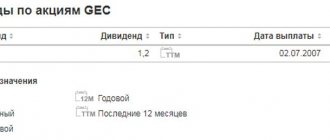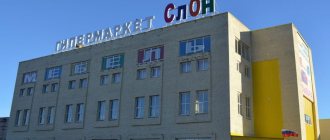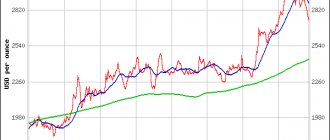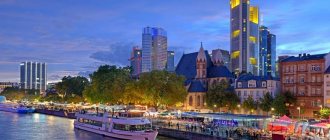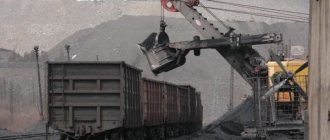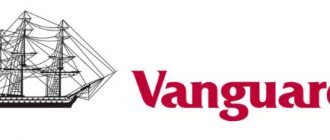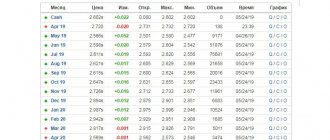Securities data
| Ticker | URKA |
| Trading platforms and trading times | Moscow Exchange, 10:00 – 18:45 Moscow time |
| Name | PJSC Uralkali |
| Number of securities in circulation | 1 276 180 928 |
| Denomination | 0.5 rub. |
| Dividends (yes/no) | No |
| Year of foundation | 1992 |
| Founded by | Dmitry Rybolovlev (based on the Uralkali production association) |
| Headquarters | Russian Federation, Perm region, Berezniki |
About company
The starting point of the company's activities is considered to be 1992. It was then, shortly after the collapse of the USSR, that the Uralkali enterprise was created in the city of Berezniki, Perm Territory. The form of entrepreneurship changed from a production association to a public joint-stock company (PJSC).
Eight years later, Dmitry Rybolovlev, a local entrepreneur and billionaire, became the owner of a blocking stake.
In 2006, the owner decided to take the shares to an IPO. The attempt was unsuccessful. Due to low demand for shares from investors, the idea had to be abandoned.
The following year, on the second attempt, the operation was successfully implemented. At the same time, 85% of the shares began to be traded on the London Stock Exchange, and a share of 15% was placed on the Russian RTS exchange. The cost of one share was 3.5 US dollars.
In 2011, after the merger of OJSC Silvinit, PJSC Uralkali became a world leader in its industry.
In 2015, Uralkali had to leave the foreign market: its shares were delisted from the London Stock Exchange due to low liquidity.
Today the enterprise includes 5 mines and 7 processing plants. All of them are located in the Perm region.
Products is Russia's largest and one of the world's largest potassium producers. The company produces 20% of the global volume of potash fertilizers. At the same time, 80% of finished products are exported. The main buyers are the USA, China, India, Latin America and Southeast Asia.
Potassium chloride is used as a fertilizer in agriculture and is used in the pharmaceutical, petrochemical and food industries.
Main shareholders
As of today, Uralkali shares are distributed in the following shares:
- 20% is controlled by Uralchem, owned by Dmitry Mazepin;
- 10% owned by Rinsoco Trading Co. Limited from the island of Cyprus, its owner is Belarusian entrepreneur Dmitry Lobyak;
- 10% are owned by Sberbank Investments LLC;
- 5.23% of shares are freely traded on the stock exchange;
- 54.77% are non-voting quasi-treasury shares.
The value of the block of shares purchased by one of the Sberbank structures in December 2021 amounted to 26 billion rubles.
Key figure and her role
In 2014, Sergey Chemezov was elected chairman of the board of directors and independent director of the company. Since then, he has been making key decisions at PJSC Uralkali.
A graduate of the Institute of National Economy and the Academy of the General Staff, he worked as a researcher at the Irkutsk Research Institute and held senior positions in the presidential administration and state corporations. Today, Sergei Viktorovich is also the General Director of the Rostec Corporation.
Under Chemezov's chairmanship, Uralkali managed to attract large investments to launch new production facilities. This may have a positive impact on the price of securities that are not in high demand today.
Affiliated companies
Today PJSC Uralkali has 8 subsidiaries:
- Uralkali Repair LLC – repair of machinery and equipment;
- Avtotranskali LLC – passenger transportation, cargo transportation, special equipment services;
- LLC "SMT "BSHSU" - construction of residential and non-residential buildings;
- LLC "Wagon Depot Balakhontsy" - restoration and equipping of rolling stock;
- JSC "VNII Galurgy" - research institute for exploration, production and processing of mining and chemical raw materials;
- JSC "Baltic Bulk Terminal" is a universal transshipment complex for storage and transshipment of fertilizers from railway cars to sea vessels;
- Uralkali Trading Sia – supply of potassium chloride (Riga, Latvia);
- Uralkali Trading Chicago – trading (Chicago, USA).
PJSC Uralkali owns 85.25% of the shares of JSC VNII Galurgy. The remaining companies are 100% subsidiaries.
Company plans for the future
Uralkali has set a goal to achieve the following volumes of potassium chloride production:
- in 2024 – up to 15 million tons;
- after 2025 – 17 million tons.
Previously, Uralkali planned to produce products in excess of 14 million tons in 2021. But due to a reduction in investments associated with the repurchase of its own shares on the market, it was not possible to achieve the planned figure.
Achieving results depends primarily on the implementation of the main project of PJSC Uralkali - the construction of the Polovodovsky potash plant. This year, management began developing documentation for the project.
Dividend statistics
| For what year | Period | Last day of purchase | Registry closing date | Size per share | Dividend yield | Closing share price | Payment date |
| 13 Jan 2015 | 15 Jan 2015 | 9M 2014 | 2,96 ₽ | 29 Jan 2015 | |||
| June 18, 2014 | June 20, 2014 | 12M 2013 | 1,63 ₽ | 4 Jul 2014 | |||
| 25 Oct 2013 | 29 Oct 2013 | 9M 2013 | 2,21 ₽ | 12 Nov 2013 | |||
| April 25, 2013 | April 25, 2013 | 12M 2012 | 3,9 ₽ | May 9, 2013 | |||
| 6 Nov 2012 | 6 Nov 2012 | NP | 4,71 ₽ | 20 Nov 2012 | |||
| April 26, 2012 | April 26, 2012 | 12M 2011 | 4,00 ₽ | May 10, 2012 | |||
| 2 Nov 2011 | 2 Nov 2011 | NP | 4,00 ₽ | 16 Nov 2011 | |||
| May 24, 2011 | May 24, 2011 | 12M 2010 | 4,55 ₽ | June 7, 2011 | |||
| May 11, 2010 | May 11, 2010 | 12M 2009 | 1,70 ₽ | May 25, 2010 | |||
| 13 Aug 2008 | 13 Aug 2008 | 6M 2008 | 4,00 ₽ | 27 Aug 2008 | |||
| May 13, 2008 | May 13, 2008 | 12M 2007 | 1,90 ₽ | May 27, 2008 |
Since 2014, PJSC Uralkali has not paid dividends. This is due to a change in policy: if earlier it was planned to spend half of the net profit on dividend payments, then later management decided to resolve the issue of payment individually each time. Today, the possibility of paying dividends not only from the net profit of the reporting year, but also from the retained earnings of previous years is being considered.
The last time Uralkali paid dividends for 2013 was 1.63 rubles. for one ordinary share.
Interesting facts about who had a hand in the appearance of the first credit cards in our country. The fact is that in the mid-90s the company was part of the founders of the Credit FD bank, which was one of the first to use card payment systems.
Uralkali is currently considered the most attractive employer in the Perm region: at the end of 2021, the average annual number of employees was 12,457 people.
Interestingly, in 2021, the company’s board of directors decided to leave the Moscow Exchange. However, for now Uralkali is still on its listing.
Share capital structure
The controlling stake, 54.2%, is on the balance sheet of a subsidiary of JSC Uralkali-Technology, 20.3% belongs to JSC UCC Uralchem (controlled by the non-executive director of the company Dmitry Mazepin), 10.4% of the shares is owned by the Cypriot RINSOCO TRADING CO. LTD (controlled by the company's non-executive director Dmitry Lobyak). Other shareholders own the remaining 15.1% of the shares.
Where and how to buy shares today
If you decide to purchase securities, then the minimum you need to buy is 10 shares. Your broker will help you find out how much a lot costs. In this case, the unit of measurement is the cost of one share, and not the entire lot. Today there are various ways to acquire Uralkali shares. Below I will discuss them in detail.
Through a Russian broker
The most acceptable and fastest way to purchase shares of PJSC Uralkali is to purchase through a Russian broker with access to the Moscow Exchange, better known among professionals as the MICEX. You only need to have an account with a brokerage company. You can open it and top up your balance via the Internet. On the exchange website you have the opportunity to monitor stock quotes in real time.
Reliable Russian brokers
| Name | Rating | pros | Minuses |
| Finam | 8/10 | The most reliable | Commissions |
| Opening | 7/10 | Low commissions | Imposing services |
| BKS | 7/10 | The most technologically advanced | Imposing services |
| Kit-Finance | 6.5/10 | Low commissions | Outdated software and user interface |
Via bank
The method of purchasing shares through a bank is not particularly complicated. True, banks prefer to work with blocks of shares worth a large amount.
Directly from a company, individual or firm
It is possible to buy Uralkali shares from individuals or companies by concluding a purchase and sale agreement. If you decide to choose this method, first compare the conditions with purchasing through the exchange. As for purchasing directly from Uralkali, it itself has been buying up its shares from minority investors in recent years.
Financial indicators
Asset dynamics
There has been a decline in assets since 2015, but strong growth has been recorded in 2021.
Capital and liabilities
In 2015, capital was in negative territory, but liabilities are performing well.
Revenue
For the last five years, the company's revenue has been approximately at the same level.
Net and operating profit
The company has posted a net loss twice in the past five years: in 2014 and 2021. Operating profits are stagnating.
Cash flow
Cash flow has also stagnated in recent years.
History of dividend payments
In 2021, 30 million preferred shares of PJSC Uralkali were placed by private subscription among the company's main shareholders, and in June of the same year, a new dividend policy was approved, according to which a minimum of 0.1 ruble dividends are allocated per preferred share.
Dividends have not been paid on ordinary shares since 2014, after an accident occurred at the Solikamsk-2 mine and the old dividend policy, which provided for payments of 50% of net profit under IFRS, was revised.
What affects the stock price
Today, stock prices are influenced by various factors, for example:
- the situation on the stock market itself;
- macroeconomic events;
- industry development or stagnation;
- competition;
- company prospects;
- news of both a negative and positive nature (significantly affect the final cost).
Let's look at some factors in more detail.
Company prospects
Today the situation with the Uralkali enterprise is ambiguous: there are both definitely negative and definitely positive aspects.
Net loss for 2021 amounted to 8.8 billion rubles. In the same year, Uralkali left the Forbes global ranking, which includes the 2000 largest companies in the world.
However, there are also positive developments. At the end of the first quarter of 2021, net profit increased 5 times compared to the same period last year. An increase in net profit also increases the market value of the business as a whole. A year ago, Uralkali received a loan in the amount of $1.5 billion from Sberbank. This will allow the launch of planned projects to increase production capacity.
Analytics and forecast for the security
Today, the price of Uralkali shares continues to stagnate. Falling prices for mineral fertilizers have a strong impact on stock prices. In the coming years, analysts predict a slow increase in prices against the backdrop of growing demand.
The current share price reflects the value and prospects of the company. Analysts advise not to expect a resumption of dividend payments in the near future.
On a positive note, I would like to note that the international agency Standard & Poor's has raised its rating forecast for the company. It changed from "stable" to "positive".
This should increase the shaky confidence in the company's securities: their market value today may increase.
Alternative in this industry
Until now, Uralkali has been a monopolist in the domestic market, until in 2021 it had a competitor in the form of. This Swiss company launched production at the new Usolsky plant. Eurochem plans to reach full capacity in 2021.
Uralkali's main competitors are located abroad. These are such large Canadian companies as Agrium and Potash Corp, Israeli Israel Chemicals, Mosaic from the USA and German K+S.
Along with Uralkali, the share of these enterprises in global potassium production is about 90%. By and large, they also determine the market value of valuable fertilizer.
Main risks for minority shareholders
These include:
- Risks associated with the implementation of investment projects: increase in budgets and implementation deadlines, as well as violation of the predicted technological parameters of projects.
- Decrease in demand and reduction in product prices.
- Financial risks associated with the volatility of exchange rates and rising interest rates, as well as the ability to service debt, comply with conventions and raise borrowed funds.
- Accidents and disasters in mines.
- Risks associated with the company's delisting, as well as unfriendly actions towards minority shareholders on the part of controlling shareholders and company management.

